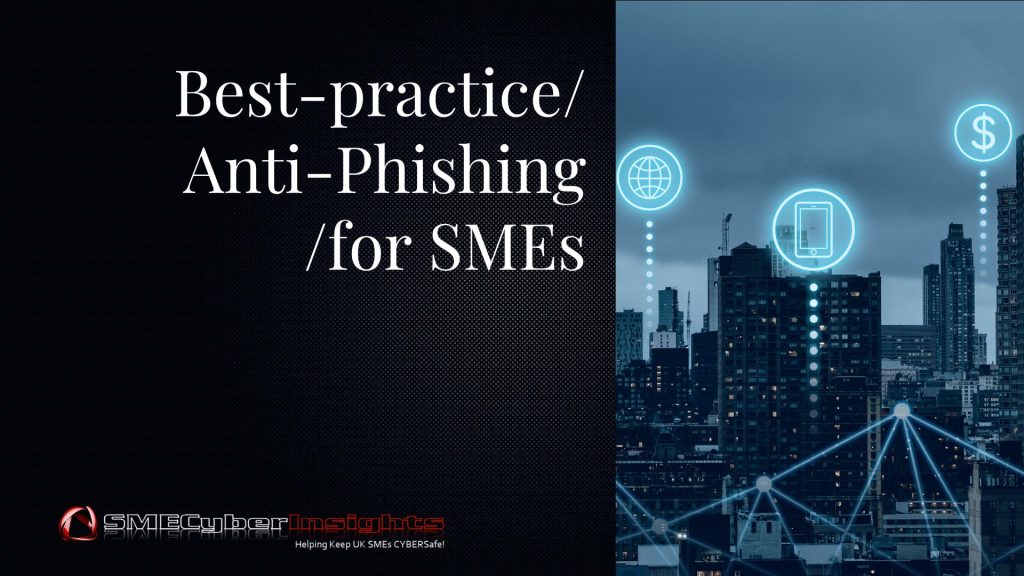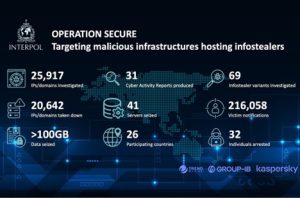PHISHING: PHISHING KPI/ Best-practice Anti Phishing for SMEs
September 11, 2024PHISHING & Understanding the Threat of Phishing. – CyberKPI: Phishing: Safeguarding Small Businesses in the UK and EU Against Cyber Deceit. Discover how Phishing attacks threaten small businesses in the UK and EU, their impact, and essential prevention strategies.
Understanding Phishing and Its Threat to Small Businesses
Phishing is a form of cyber attack where perpetrators deceive individuals into divulging sensitive information such as passwords, credit card numbers, or personal identification details through fraudulent communications. These attacks are commonly executed via email, SMS, or even phone calls, making them a prevalent threat to Small Businesses in the UK and EU. In fact, Phishing attacks have increasingly targeted small businesses, with a staggering 83% of UK businesses experiencing such attacks in 2022. This widespread issue indicates that Small Enterprises are often seen as easier targets due to typically having fewer resources dedicated to cybersecurity.
The financial implications of Phishing attacks can be severe. On average, each Phishing incident results in a loss of approximately £136, contributing to an overall global theft of nearly $44.2 million in 2021. Phishing scams often exploit human emotions, such as fear or urgency, compelling victims to act quickly without verifying the source of the communication. This is particularly problematic as about 65% of cybercriminal groups utilise spear Phishing as their primary method for gathering intelligence on their targets. The increase in remote work has further exacerbated this vulnerability, as employees may let their guard down when responding to suspicious messages.
Common Forms of Phishing Attacks
Small Businesses should be aware of various forms of Phishing attacks that can compromise their security. Email Phishing is the most common type, where attackers send fake emails that appear to be from legitimate organisations, with well-known brands like Google and Adobe frequently impersonated to entice victims to click malicious links. Spear Phishing specifically targets individuals or companies using personal information to lend credibility to the attack, while Vishing (voice phishing) involves phone calls that trick victims into revealing sensitive data. Another variant, Smishing, uses SMS messages to create a sense of urgency that prompts quick responses from the recipient.
Whaling is another sophisticated form of Phishing that focuses on high-profile individuals within a company, such as executives, often using carefully crafted messages to extract sensitive information. Clone Phishing is also noteworthy; it replicates legitimate emails that have been previously sent, replacing links with malicious ones to deceive recipients. Awareness of these varying tactics is essential for Small Businesses to bolster their defence against phishing attempts.
Impact of Phishing on Small Businesses
The impact of Phishing on Small Businesses can be catastrophic. Phishing is reported as the most prevalent type of cyber attack, affecting 84% of businesses in the UK. The financial ramifications can be dire, with the average cost of a disruptive breach around £1,205. Furthermore, significant data breaches can lead to even greater financial consequences, with breaches involving 10 million records costing an average of £50 million. Beyond financial losses, Phishing attacks can severely damage a business’s reputation, leading to a loss of customer trust and potential revenue.
The recovery from a Phishing incident can be exceptionally costly, with estimates suggesting that it may exceed $14.8 million for affected organisations. In fact, a staggering 96% of organisations reported experiencing at least one Phishing attack in the past year, underscoring the pervasive nature of this threat. This statistic highlights the urgency for Small Businesses to take proactive measures in their cybersecurity strategies.

Best Practices for Preventing Phishing Attacks
Preventing Phishing attacks requires a proactive approach from Small Businesses. Regular employee training on recognising Phishing attempts is essential and has been shown to reduce successful attacks by up to 90%. Implementing multi-factor authentication (MFA) provides an additional layer of security beyond just passwords, making it harder for attackers to gain access to sensitive information. Keeping software regularly updated and patched can close vulnerabilities that Phishing attacks may exploit.
Developing a robust incident response plan is critical; this plan should outline steps to take if a Phishing attack occurs, ensuring that all employees know their roles in the event of a breach. Employing Anti-Phishing email security measures can filter out suspicious emails before they even reach inboxes, and fostering a culture of reporting suspicious communications can enable quick responses to potential threats. These strategies collectively create a formidable defence against Phishing attacks.
Importance of a Phishing Response Plan
Despite the evident risks, only 22% of businesses have a formal incident response plan in place, which is crucial for effectively managing cyber risks. A well-structured response plan should include monitoring for Identity Theft and ensuring that antivirus software is updated after an attack. Establishing clear reporting procedures for employees when they suspect a Phishing attempt is also vital. Regularly reviewing and updating the response plan to incorporate new Phishing tactics and emerging threats is essential for maintaining effectiveness.
Engaging with cybersecurity professionals to conduct drills and simulate Phishing attacks can enhance employee preparedness and awareness significantly. The importance of a formal Phishing response plan cannot be overstated, as it equips businesses to act swiftly and effectively in the event of an attack, mitigating potential damages.
Strategies for Enhancing Cybersecurity Awareness in Small Businesses
To bolster cybersecurity awareness, Small Businesses should promote continuous learning about cybersecurity threats through workshops and online courses tailored for employees. Sharing recent case studies and statistics about Phishing attacks can raise awareness of the potential impacts on the business. Creating an environment where cybersecurity is viewed as a shared responsibility among all staff, rather than solely the domain of the IT department, fosters a culture of vigilance against Phishing threats.
Collaborating with local cybersecurity organisations can provide access to resources and best practices that can help improve security measures. The proactive engagement of all employees in cybersecurity training and awareness initiatives is a crucial step towards fortifying Small Businesses against the ongoing threat of Phishing attacks.

What is a VPN & Does my SME Need one? A VPN is a Virtual Private Network a method of securing your communications credentials. When it comes to Small and Medium-sized enterprises (SMEs), the choice of VPNs can significantly impact the security and efficiency of their operations.
The NordVPN service allows you to connect to 5600+ servers in 60+ countries. It secures your Internet data with military-grade encryption, ensures your web activity remains private and helps bypass geographic content restrictions online. Join NordVPN Today and Save up to 73% and Get 3 months Extra Free – Rude Not to …!
CYBER Insights – Helping keep Small Business CYBERSafe!
Launched in 2020 by Cybersecurity Journalist Iain Fraser and his team at IfOnlyCommunications, CYBERInsights was developed to be the go-to platform providing definitive, reliable & actionable Cybersecurity News, Intel & Awareness Training for SMEs throughout Europe (UK & EU) as they as they further embraced new Technologies and Business Practices.












